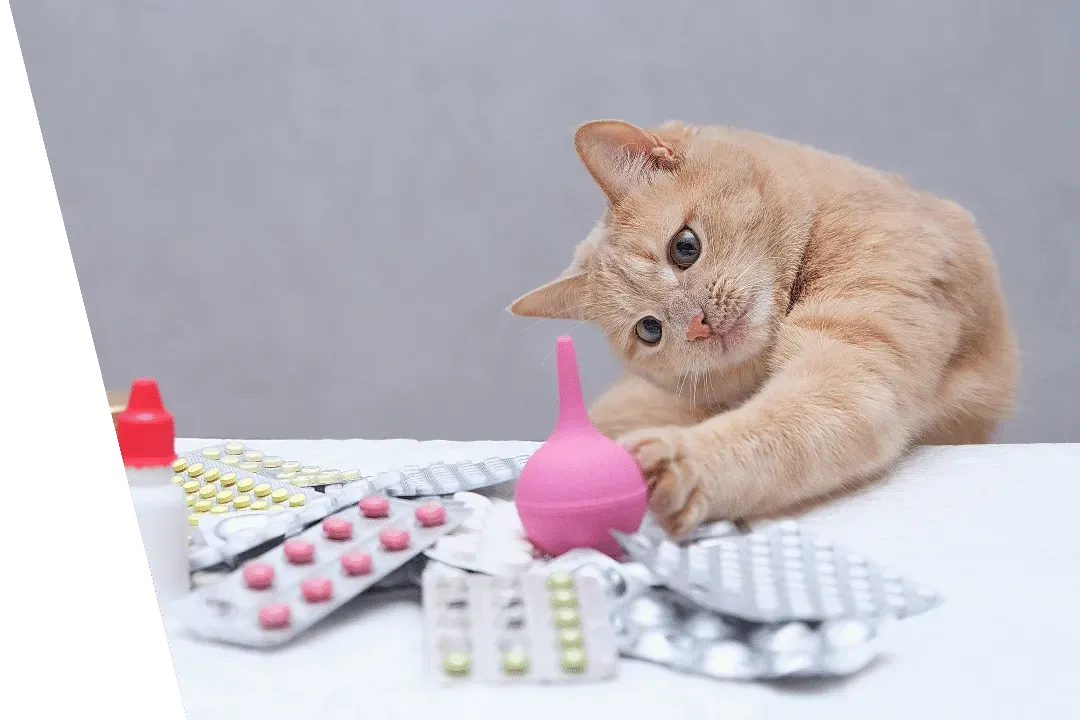Written Prescriptions & Record Review Fee: What You Need to Know
Keeping Medications Safe, Simple, and Community-Focused

At Southpaw Animal Clinic of Madison, we want to make sure you have clear information about how we handle written prescriptions, why a record review fee may apply, and what your options are for obtaining your pet’s medications. Below are some of the most common questions we receive about this policy.
Q: What happens if I request a written prescription after my appointment?
If a prescription is not requested at the time of your pet’s appointment, a record review fee ($25) will apply. This fee covers the staff time required to review your pet’s medical record, ensure the request is properly documented, and prepare the prescription.
Q: How can I avoid the record review fee?
There are two ways to avoid this fee:
- Purchase your pet’s medication directly from our in-house pharmacy.
- Order through our online pharmacy (Vetcove Home Delivery), which offers free shipping once your order total reaches $49.
Q: Do you call prescriptions into pharmacies?
We do not call in prescriptions to pharmacies. Relaying prescription information over the phone increases the risk of dosing errors and does not create a written record in your pet’s medical file. Written documentation is safer and more accurate for both your pet and our medical records.
Q: Some pharmacies ask you to write prescriptions differently than what the doctor ordered—why won’t you do this?
Unfortunately, some outside pharmacies request that we adjust prescriptions to fit their systems or make it more convenient for them. We cannot comply with these requests. Our veterinarians must prescribe medications exactly as medically indicated for your pet’s health and safety.
Q: Why did you institute this prescription policy?
Managing outside prescriptions is time-intensive. Staff must review records, confirm details, and prepare documentation—each step taking away from time we could be spending directly with patients.
More importantly, written prescriptions reduce the risk of error compared to verbal communication. With little regulation of online pharmacies, we also cannot ensure the quality or authenticity of medications filled outside our clinic.
Q: Why does it matter if I buy my pet’s medications directly from my vet instead of a large corporation?
When you purchase through big-box or third-party online retailers, most of the profit leaves our local community and goes directly into the pockets of large corporations. Small veterinary clinics like ours rely on pharmacy sales to offset the rising costs of medical equipment, staff training, and patient care. By choosing to buy from us, you’re helping support local jobs, reinvesting in your community, and keeping independent veterinary medicine alive.
Q: Aren’t medications cheaper through big retailers?
Not always. Large corporations may advertise low prices, but those prices often don’t include rebates, manufacturer guarantees, or bundled savings. Through our Vetcove Home Delivery pharmacy, you not only receive competitive pricing but also manufacturer rebates and full product guarantees. In addition, when you factor in free shipping after $49 and flexible payment options like Klarna, the difference in cost is often minimal — while the value and safety are far greater.
Q: How does supporting your in-house or online pharmacy help Southpaw Animal Clinic of Madison?
Every purchase made directly through us helps sustain our practice so that we can continue to invest in:
- Cutting-edge medical equipment for diagnostics and treatment
- Continuing education for our staff to stay current with advances in veterinary medicine
- More appointment availability to serve our community’s pets
- Community involvement such as educational programs and outreach
Supporting your local veterinary practice directly helps us provide the best care possible for your pet.
Q: What is the benefit of ordering through Southpaw’s online pharmacy?
Due to the prevalence of fraud in the realm of online pharmacies, Southpaw Animal Clinic of Madison highly recommends purchasing medications from a reputable source. That’s why we’ve partnered with Vetcove Home Delivery.
- Medications from our online pharmacy come from the
same warehouse that supplies our clinic’s stock.
- Products are guaranteed authentic, safe, and contamination-free.
- If your pet experiences a medication-related problem, we can directly address it here at the clinic.
- Our suppliers provide
rebates and guarantees not available through many third-party retailers.
- Our online pharmacy allows flexible payment options—including Klarna—to help split costs.
Q: What if I still want to use an outside pharmacy?
We absolutely support your right to choose where you purchase your pet’s medications. If you prefer to use another source, you may request a written prescription from us and pick it up during normal business hours. Please keep in mind that the record review fee ($25) will apply if this request is outside of your appointment.
Q: Is it safe to purchase from outside or international pharmacies?
Buying medications from unverified online retailers can be risky due to potential incorrect dosing, counterfeit products, or contamination. It’s also important to know that purchasing medications from a foreign country is considered illegal by the FDA.
Q: Why should I consider Southpaw’s in-house or online pharmacy instead?
- No record review fee applies.
- All products are
guaranteed by the manufacturer and by your veterinarian.
- You can access
competitive pricing, rebates, and free shipping after $49.
- Medications and special diets are shipped safely, with proper handling and storage from manufacturer to your doorstep.
Q: What if I have more questions?
We are happy to discuss our prescription policy further with you. Please contact us at Southpaw Animal Clinic of Madison with any questions. Thank you for trusting us with your pet’s medical care!
When you purchase medications directly from Southpaw Animal Clinic of Madison—whether in-house or through our online pharmacy—you’re not only ensuring your pet receives safe, guaranteed products, but you’re also supporting a small, local business. Every purchase helps us provide better care, invest in our staff and equipment, and stay available for the pets and families in our community.






Share On: